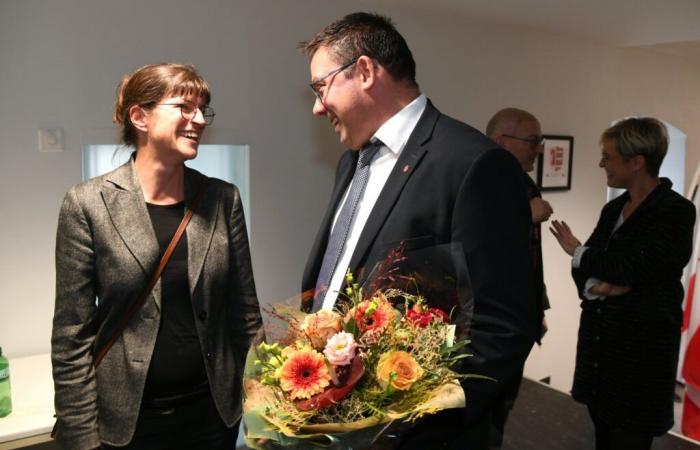The canton of Jura experienced a pivotal political moment on Sunday, with the election of a new minister, Stéphane Theurillat (Center) having easily beaten Pauline Godat (Vert-es) and Pascal Prince (HelvEthica). But we will also remember from this deadline another reality, that of a large part of the electorate who did not express the slightest preference. Participation was limited to 35.3%, more than four percentage points below that of the federal elections. But even more remarkable, this rate takes into account 930 blank ballots. On the Jura scale, this figure is particularly high. During the previous complementary election to the Government, in 2020, the number of blank ballots rose to 367.
Foreigners who don’t vote?
Why such abstention? Why these no choices? Political scientist Pascal Sciarini first qualifies the difference observed between the cantonal election and federal objects. According to him, the fact that the canton of Jura grants the right to vote to foreigners for cantonal votes and elections – which is not possible at the national level – can partly explain the gap. Several studies have shown that the foreign population is less vocal than the Swiss population, recalls the professor at the University of Geneva. This particularly concerns the Italians, the Spanish and the Portuguese, he specifies. This phenomenon has also been suspected to explain certain differences in participation rates in the Jura in the past. During the 2023 federal elections, this value was thus higher for the election to the National Council (where only the Swiss elect), with 43.6%, than for that to the Council of States (where foreigners can also vote), with 41%.
Little competition
In the present case, however, this phenomenon alone does not explain the difference. Despite a smaller electoral pool of 5,600 people, federal objects mobilized more voters than the executive election.
With only two parties and one movement in the running, a certain number of voters certainly did not recognize themselves in the candidates in the running. Furthermore, a complementary election rather favors the major parties. Did the voters consider that everything was a foregone conclusion? Professor Sciarini believes this is possible, given that the Center is a stronger party than the Greens in Jura. “It is not surprising to have a low turnout for an uncompetitive election,” he notes.
Loss of confidence
Former journalist and head of the Switzerland section of Le Temps, but also former spokesperson for the Jura Government, Yves Petignat for his part has the impression that the interest of the Jura population in cantonal politics is diminishing. “We are perhaps sanctioning a lack of prospects in the canton of Jura,” feels the observer, pointing out an absence of projects, as well as the difficult financial situation of the State.
“We see more and more people who are turning away from politics, who do not believe in its effectiveness,” points out the former mayor of Fontenais. An underlying trend? Last year, on the occasion of the 175th anniversary of the Federal Constitution, the think tank of the Swiss Society of Public Utility Pro Futuris published the results of a survey which established that almost half of those questioned do not believe that the political world is capable of solving the major problems of the future.
Legitimacy not really in question
With such low participation, a distance potentially created between the population and its authorities, do elected officials still retain the same legitimacy? Yes!, considers the State Chancellor of the canton of Jura Jean-Baptiste Maître. “The electoral system is reliable and open,” he assures.
Pascal Sciarini is of the same opinion. Having 35% participation is not necessarily a problem. Democratic legitimacy is based more on the quality of participation than on quantity, contextualizes the professor. Ideally, all segments of society should express themselves in the same proportions. “Various studies have already shown that in general young people, foreigners and working-class backgrounds are under-represented. There may be a problem of legitimacy in relation to these specific categories,” he explains. A problem not characteristic of the canton of Jura therefore.
Swiss






